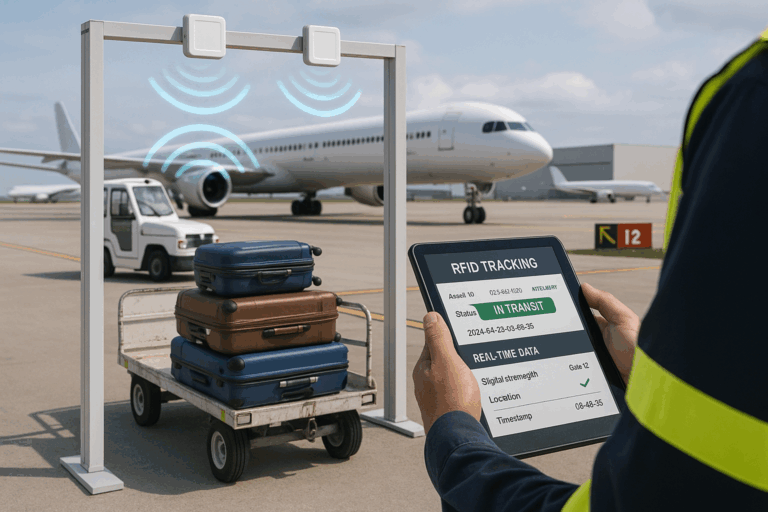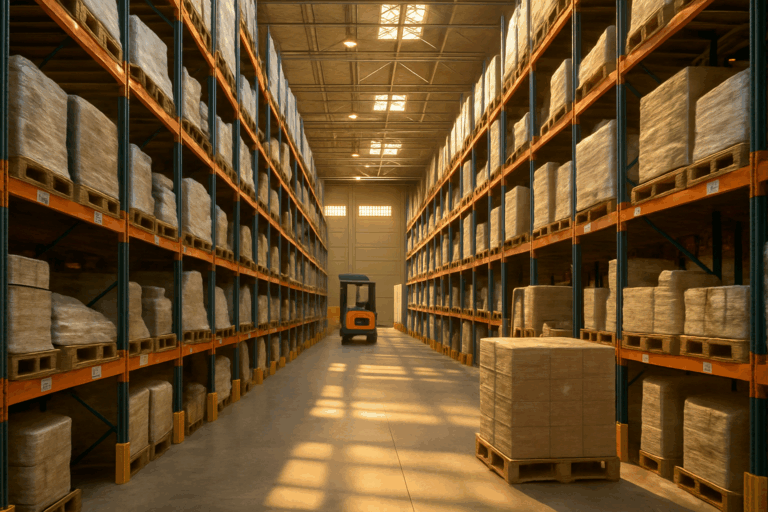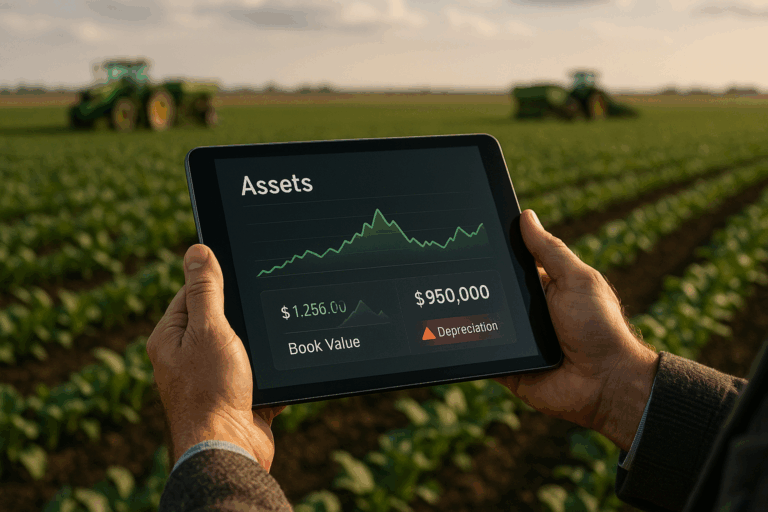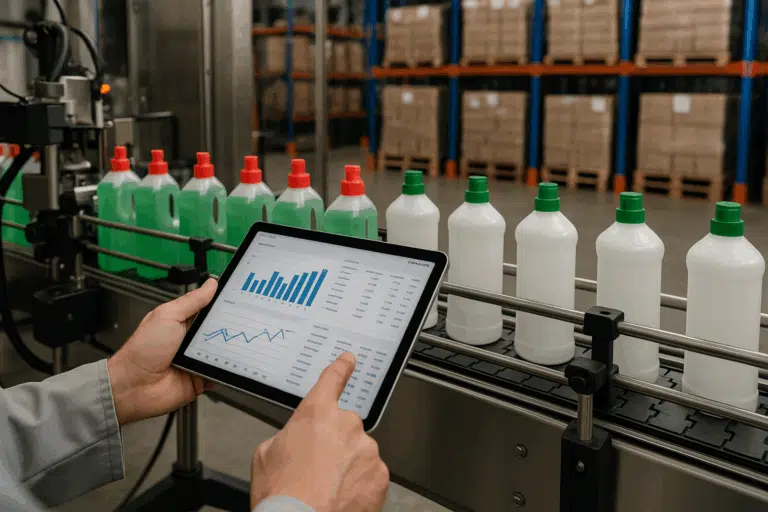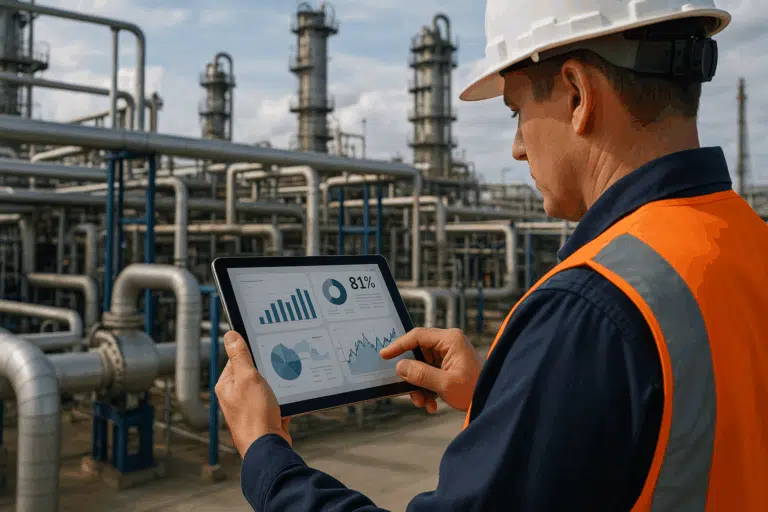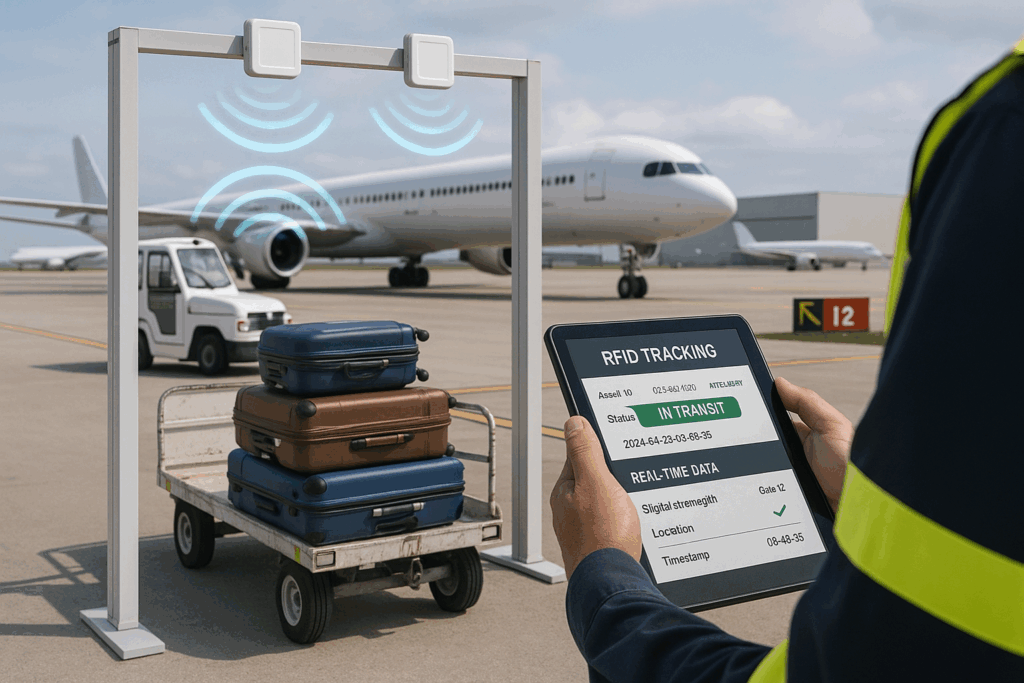Do you want to know how oil and gas companies can lead in a changing world? They need strong asset management software to save costs and meet ESG goals. This is more important than ever.
Oil and gas companies must show they are sustainable and run well. Using the right software can really help their finances. For example, they can cut equipment failures by 40% and safety issues by 50%.
By using RFID and RTLS, companies can watch their assets in real time. This helps follow safety rules and track important equipment.
Fiix and Orases are leaders in this field. They have helped over 4,000 companies improve. Orases keeps 96% of its clients happy.
By focusing on ROI, companies can manage their assets better. This leads to smarter decisions, better control, and big savings. Let’s see how software can help.
Table of Contents
ToggleKey Takeaways
- Oil and gas asset management software can drastically improve operational efficiency and reduce equipment failures by up to 40%.
- Effective software solutions aid in achieving a 50% decrease in safety compliance issues.
- Integrating RFID and RTLS technology enhances real-time asset tracking and monitoring.
- Leading software providers like Fiix and Orases offer tailored, industry-specific solutions to maximize ROI.
- Post-implementation benefits include optimized supply chain operations and reduced product waste.
- Advanced software enables better management of ESG and sustainability metrics, ensuring progress towards key performance indicators.
Introduction to Oil and Gas Asset Management

The oil and gas asset management world is all about making the most of assets from start to finish. It’s a tough field, with prices changing a lot and global issues adding to the mix. Using top-notch software is key to managing oilfield assets well. This helps companies make more money, keep things running smoothly, and stay safe.
Using an efficient oil and gas management tool helps companies meet important goals:
- Reduction in inspection costs by 20%
- Decrease in turnaround time by 30%
- Savings exceeding $100,000 per leak prevented
Big steps forward have been made, like Shell Global Solutions’ Risk and Reliability System (RRM) in 2002. This partnership helped create special asset management solutions for the industry. Real-life testing and oilfield asset management have been super helpful.
Oil and gas companies can manage their inventory better with strong asset management. This means they can have the right parts ready without spending too much. It also helps them follow rules and pass audits.
Predictive maintenance is a big deal in efficient oil and gas management tools. It stops problems before they start, makes assets last longer, and makes products more reliable. This boosts plant efficiency and avoids sudden shutdowns. Fleet management and regular upkeep also help avoid breakdowns and keep workers safe.
In short, a good oilfield asset management system helps companies use assets wisely. It improves performance, uptime, and how long equipment lasts.
| Key Benefits | Impact |
|---|---|
| Reduction in Inspection Costs | 20% |
| Decrease in Turnaround Time | 30% |
| Savings per Leak Prevented | Over $100,000 |
Benefits of Using Oil and Gas Asset Management Software

Asset management software is key for the oil and gas industry. It boosts efficiency, cuts risks, and saves money. It’s a must-have for today’s oil and gas companies.
Operational Efficiency
Oil and gas software makes things run smoother. It combines different tasks into one place. This cuts down on waste and makes work flow better.
The software shows important data clearly. This helps leaders make quick decisions. It also lets companies adjust the software to fit their needs best.
Risk Mitigation
Asset management software helps lower risks. It keeps all data in one spot, making sure it’s right. This reduces the chance of wrong information causing problems.
It also keeps data safe with strong security. This includes things like encryption and backups. Audits through the software help find ways to improve and stay compliant.
Cost Savings
Using oil and gas software can save a lot of money. It automates maintenance, cutting down on downtime. This means less lost time and more work done.
It also saves time by making sure data is correct. This includes audits. Real-time tracking helps manage equipment better, saving even more time and money.
| Benefit | Description | Impact |
|---|---|---|
| Operational Efficiency | Streamlined processes, reduced manual errors, and enhanced decision-making | Increased productivity and smarter business decisions |
| Risk Mitigation | Centralized data collection, enhanced security, and compliance support | Reduced risks and safeguarded company information |
| Cost Savings | Automation of processes, maintenance scheduling, and real-time tracking | Lower operational costs and minimized downtime |
Integrating RFID and RTLS in Asset Management
The use of RFID and RTLS in asset management changes how we handle valuable assets in the oil and gas field. It brings real-time visibility and improves operations. This leads to better efficiency, security, and cost savings.
Enhanced Asset Tracking
Using RFID and RTLS in tracking software is a top-notch way to see assets in real-time. It helps track where and what assets are, making inventory management easier. It also cuts down on asset loss and keeps audits in check.
For example, SmartX HUB RTLS lets companies set up unlimited virtual zones. They can track assets in real-time, making production workflows more efficient.
Real-Time Monitoring
Real-time monitoring is key for quick responses to changes or problems. RFID and RTLS make this possible. They give stakeholders the latest info to keep operations and asset performance high.
A real-time oil and gas management platform can boost workplace efficiency. It also sends out alerts about environmental conditions during transport or storage. This improves control and safety with features like personal duress systems and evacuation monitoring.
Also, RTLS works well with ERP systems like SAP, Oracle, and PeopleSoft. This gives full visibility into equipment use and distribution. It helps companies get the most out of their assets and shows a good ROI from the start. The system grows with the company, making it a smart investment for the future.
Top Features of Advanced Asset Management Software

Finding the best asset management software for the oil and gas industry is key. It needs to manage data well, be easy to use, and offer detailed reports. These features help improve efficiency and make better decisions.
Data Management Capabilities
Good data management is crucial for top asset management software. HxGN EAM and LLumin’s CMMS+ have strong features for handling lots of data. HxGN EAM breaks down linear assets into segments for better data handling.
LLumin’s CMMS+ uses AI to predict when equipment might fail. This helps plan maintenance and keeps data reliable.
User-Friendliness and Ease of Implementation
Choosing software that’s easy to use and set up is important. A simple interface helps teams adopt it quickly. LLumin’s CMMS+ cuts downtime by up to 40% and improves repair times by 20% in two years.
It also helps meet asset management rules. Good training and support make it easy to start using these tools.
Advanced Reporting and Analytics
Good reporting and analytics are key for making smart decisions. Top software gives detailed reports from real-time data. HxGN EAM finds the root cause of problems to avoid costly outages.
It offers insights into how assets perform and trends. This helps get the most from investments and improve operations.
Here’s a table comparing HxGN EAM and LLumin’s CMMS+:
| Feature | HxGN EAM | LLumin’s CMMS+ |
|---|---|---|
| Workflows for Facilities Management | 14 out-of-the-box workflows | Cloud-based automation |
| Real-Time Telematics Integration | Captures complete maintenance history | Predictive maintenance alerts |
| Compliance Facilitation | Segmented linear assets | Regulatory compliance support |
| Warranty Processing | Automated for vehicle repairs | Auto-generated work orders |
| Root Cause Analysis | Prevents unplanned outages | Reduction in reactive maintenance |
| Operational Efficiency Improvement | – | Up to 40% reduction in downtime |
| Mobility and Cloud Access | – | Cloud-based platform |
Knowing these features helps pick the right software. It boosts performance, manages data well, and offers strategic insights for the oil and gas industry.
Choosing the Best Oil and Gas Asset Management Software

When picking the best oil and gas software, several key factors are important. The oil and gas industry makes over $5 trillion a year. It needs strong asset management to work well, keep data right, and follow rules.
Assessing Software Requirements
Doing a detailed software requirements assessment is key. It helps find and sort out what your operations need. Look at things like:
- Compatibility: Make sure it works well with what you already have.
- Functionality Scope: See if it does what you need, like managing data and following rules.
- User-Friendliness: Pick something easy to use. This means less training is needed.
Handling lots of data is very important. The software must manage this data well. It should also have tools for making decisions and keeping data safe.
Scalability and Integration
The oil and gas industry changes a lot. So, the software needs to grow with it. It should work well with other systems, like EAM and ERP.
- Future Growth: The software should grow with your business without big changes.
- Integration Capabilities: It should work well with other systems for smooth operations.
Updating old software can save a lot of money and make things more efficient. For example, Blackthorn Vision helps make old systems work better.
Having a good EAM or CMMS is very important. It helps avoid unexpected stops and makes things run better. Also, moving to the cloud is big. You need a vendor that knows how to do it safely and well.
| Requirement | Details |
|---|---|
| Data Management | Handling large volumes of data for operational accuracy and data security |
| Automation | Improving operational efficiency and reducing human error |
| Compliance | Facilitating adherence to environmental mandates and minimizing health risks |
| Scalability | Adapting to changing business sizes and needs |
| Integration | Seamless cooperation with EAM, ERP, and GIS systems |
| Cloud Deployment | Secure and reliable hosting for digital transformation |
| Analytics | User-friendly platform for KPI monitoring and predictive maintenance models |
Optimizing Oil and Gas Operations with Technology Solutions
In today’s fast-changing energy world, using the latest technology is key. It helps the oil and gas industry work better and perform better. Let’s look at how these advanced technologies help improve operations.
Real-Time Data Interpretation
Real-time data is crucial for better oil and gas operations. It gives quick insights for fast decisions and better control. For example, BP used a digital twin in Azerbaijan to improve processes and productivity.
Suncor also used AVEVA solutions to monitor equipment health. This shows how timely data analysis can help.
- Immediate Insights: Real-time data helps make quick decisions and avoid delays.
- Enhanced Efficiency: Using data right away helps companies work better and solve problems early.
Boosting Collaboration and Decision-Making
Good teamwork and smart decisions are key for oil and gas success. Technology helps by making data easy to share and understand. This lets teams work together better.
For example, Schlumberger combined different data into one platform. This made decision-making faster and smarter.
TotalEnergies used AVEVA™ PI System™ to track energy use and emissions. This shows their commitment to being green and doing well.
- Unified Data Platforms: Putting data in one place helps everyone get the info they need.
- Strategic Decision-Making: Clear data helps leaders make choices that match company goals.

Companies like AVEVA and Petrofac know digital is important. They recently teamed up to speed up digital changes in energy. These tech steps are vital for oil and gas to grow and manage resources well.
| Company | Initiative | Outcome |
|---|---|---|
| AVEVA & Petrofac | Digital Transformation MoU | Enhanced Innovation and Efficiency |
| BP | Full Life-Cycle Digital Twin | Improved Offshore Operations |
| TotalEnergies | AVEVA™ PI System™ | Scaled Emissions Monitoring |
| Schlumberger | Unified Visualization Platform | Agile Decision-Making |
By using these tech solutions, we can make oil and gas better. We can also keep innovating, cut costs, and make smart moves. With real-time data and teamwork, the industry is ready for the future. It can make smart choices with strong, reliable tech.
Improving ESG and Sustainability with Asset Management Software
In today’s oil and gas world, doing well in ESG and sustainability is key. It’s not just about following rules; it’s about setting up for success over time. Energy asset management is a big help in reaching these goals. With oil and gas sustainability software, companies can use data to make better choices. This helps them do less harm to the environment and be more sustainable.
Studies show that 86% of people say asset management software makes ESG and sustainability reports better. This leads to clearer talks with stakeholders. Also, 78% say the software helps them track ESG and sustainability goals better. And 74% say it helps avoid problems with wrong data, making reports more reliable.
Good energy asset management uses smart tech to make data collection and checking easier. About 86% say the software makes getting data faster and better. Also, 68% say they save at least 35% of time during data checks, including audits.
Companies are working hard to cut down emissions and lessen their environmental impact. For example, methane emissions will cost more in 2025, going up to $1,500 per ton in 2027. Using sustainable practices and software can help meet these rules.
Changing how things are done can really help the environment. Using new tech like IoT and AI can find ways to be more sustainable. Companies that do this well can be more efficient and keep their profits up.
Using asset management software also meets global standards. The ISO 55000 Series and GRI Standards are important for showing we care about sustainable management. These standards help us stay ahead in the market.
Improving ESG and sustainability in oil and gas means working with big trends like renewable energy. By cutting emissions and aiming for carbon neutrality, oil companies can be sustainable and attract investors who care about ESG.
| Key Findings | Percentage |
|---|---|
| Improved quality of ESG reporting | 86% |
| Enhanced management of ESG metrics | 78% |
| Efficient data collection and validation | 86% |
| Risk mitigation of inaccurate data | 74% |
| Time-saving in data validation | 68% |
Maximize ROI with Industry-Specific Solutions
In today’s competitive oil and gas market, using specific asset management solutions can really help. FieldCircle’s software is made to tackle the oil and gas industry’s unique challenges. It offers tools for managing assets and creating custom analytics.
Custom-Built Platforms
The oil and gas industry needs special platforms for managing assets. These platforms help improve operations, keep up with maintenance, and follow environmental rules. They let users manage different sites like rigs, wells, and pipelines well.
These platforms make maintenance easier by letting users plan inspections and service equipment fast. They also help reduce downtime and make assets last longer. Plus, QR codes make audits and maintenance easier.
Tailored Reporting and Analytics
FieldCircle’s software is great at giving reports and analytics that fit your needs. It offers advanced analytics, reports you can customize, and dashboards that change. This helps businesses make smart choices with exact data.
With these reports and analytics, companies can make detailed reports before and after inspections. They can track asset conditions and understand their operations better. This helps leaders make better decisions, reduce risks, and improve financial planning.
| Feature | Description |
|---|---|
| Inspection Scheduling | Enable timely and routine inspections to maintain operational standards. |
| Work Order Management | Create and manage work orders to ensure tasks are completed efficiently. |
| QR Code Integration | Use QR codes for efficient asset tracking and auditing. |
| Advanced Analytics | Leverage data insights for strategic decisions and compliance. |
| Custom Reports | Generate reports tailored to specific operational needs and goals. |
Using special platforms for oil and gas, along with reports and analytics, really boosts asset management. These tools improve efficiency and make sure rules are followed. This way, companies can get the most out of their investments in the competitive oil and gas industry.
Tracking and Validating Data for Better Decision Making
Accurate data is key in the oil and gas world. By focusing on tracking and validating data, we get precise and useful info. Advanced systems help manage data well, offering a clear view and better efficiency.
Efficient Data Collection
Automating data collection is crucial for efficient data collection. Our software makes it fast and accurate. It cuts down on mistakes and keeps data safe for good decisions.
With nearly 300 facilities using our tech, Refining, Midstream, and Petrochemical see big benefits.
Utilizing Predictive Analytics
Predictive analytics in asset management is a big step. It spots problems early, cuts downtime, and saves money. Our tools give alerts and updates in real-time, helping us act fast.
This boosts our ability to follow rules and work better.
Here are some stats showing how good data and predictive tools help:
| Statistic | Value |
|---|---|
| Customer Satisfaction Score | 95% |
| Faster Onboarding | 75% |
| Total Quality Assurance Service | Over 15 years |
| Facilities Using the System | Nearly 300 |
Oil and Gas ERP Systems for Comprehensive Management
ERP systems for the oil and gas industry do more than manage assets. They offer comprehensive management solutions for many aspects of the industry. These systems handle finances, HR, and more, helping manage operations well.
The oil and gas ERP systems have features for different parts of the industry. They help with production, logistics, and distribution. For example, BW Offshore improved project control with over 1,800 users.
Finance and accounting get a big boost with over 2,000 tools. Prices start at $70 per user per month for Microsoft Dynamics 365. This makes it affordable for many businesses. Borr Drilling shows how fast and effective these systems can be.
These systems are great at managing finances, assets, and supply chains. They also help with compliance and reporting. This makes operations smooth and efficient.
Features like advanced analytics and IoT integration make these systems smart. Predictive maintenance, powered by AI, cuts downtime. Cloud-based solutions help with scalability and remote work.
Keeping data safe is key. The industry is moving towards better security and AI. This is changing ERP software for the better.
Field Management Software for Enhanced Productivity
In today’s fast-paced oil and gas industry, using strong field management software is key. These tools help make operations smoother and let you watch over assets from afar. This makes managing and keeping things running well easier.
Streamlining Field Operations
Field management software makes things run better by organizing tasks and resources. It’s vital for oil and gas work, keeping things moving smoothly. It helps plan tasks and do maintenance before problems happen, cutting down on downtime.
Field management software like FieldEquip gives you tools to improve service work. It offers real-time talks, scheduling, and asset tracking, among other things.
Remote Monitoring and Maintenance
Watching over oil and gas assets from afar is a big deal now. Field management software lets companies keep an eye on distant or hard-to-reach places. This means they can fix things fast, keeping things running smoothly.
Systems like IFS and FieldEquip also help with remote help, cutting down on travel time. They make it easier to manage mobile workforces, plan, and schedule. This makes big operations easier to handle.
| Company | Key Features | Pricing | Free Trial |
|---|---|---|---|
| FieldEquip | Real-time communication, scheduler, asset management | Available upon request | Free demo provided |
| IFS | AI scheduling optimization, remote assistance | Available upon request | No free trial |
| PetroFly | Production tracking, supply chain management | Available upon request | No free trial |
Each software has special features for different needs, like watching over oil and gas assets and making field work smoother. Choosing the right software can boost productivity, cut costs, and meet industry standards.
Effective Asset Maintenance Strategies
Keeping assets in top shape is key in the oil and gas world. Using condition-based and predictive maintenance helps a lot. It cuts down on downtime and makes assets last longer.
Condition-Based Maintenance
Condition-based maintenance checks on assets to know when to fix them. It stops unnecessary work and keeps assets running longer. For example, over 4,000 teams worldwide use Fiix to plan maintenance with real-time data.

Predictive Maintenance
Predictive maintenance uses data and AI to guess when equipment might fail. It looks at past and current data to plan maintenance better. Fiix, for instance, handles over 6.2 million work orders a year.
This approach helps track assets, set up maintenance plans, and watch them in real-time. It cuts down on unexpected stops and makes maintenance smoother. Fiix makes it easy to access info and set up maintenance with QR codes and automatic triggers.
Case Studies: Successful Implementation of Asset Management Software
Companies in the oil and gas industry are always looking to work better and make more money. They’ve found a big help in advanced asset management software. Looking at case studies in asset management, we see big wins like increased capital efficiency and enhanced operational control through software.
Increased Capital Efficiency
Redcentric Solutions Limited quickly hit their targets with License Dashboard’s tools. EDF cut down on software costs and got rid of Shadow IT, leading to big gains. For O&G Co., using the Enterprise Asset Management (EAM) system boosted their revenue by 4%.
It also saved them over $35 million USD a year in maintenance. Plus, it gave them an $11 million cash flow boost.
Enhanced Operational Control
Fugro-ICT used License Dashboard to keep track of all software licenses and contracts. This let them report in real-time for compliance and track unused software. Dublin City Council improved its IT network with License Manager software, showing the power of enhanced operational control through software.
The EAM system also made equipment maintenance, pipeline monitoring, and truck planning better for O&G Co. It helped them work more efficiently and proactively.
| Company | Outcome |
|---|---|
| Redcentric Solutions Limited | Achieved goals rapidly with License Dashboard products. |
| EDF | Eliminated Shadow IT, optimized costs, matured into a strong team. |
| O&G Co. | 4% revenue increase, $35M annual savings, $11M cash flow release. |
| Fugro-ICT | Real-time reporting, compliance tracking with License Dashboard. |
| Dublin City Council | Optimized IT network with License Manager software. |
These case studies in asset management show how advanced software can change things. It leads to increased capital efficiency and enhanced operational control through software for oil and gas companies.
Measuring the ROI of Oil and Gas Asset Management Software
It’s key for companies to know the return on investment (ROI) of oil and gas asset management software. This helps them make more money. We look at how to do this by watching key performance indicators (KPIs) important in the oil and gas world.
Cost-Benefit Analysis
Understanding the cost and benefits of technology is crucial. It shows if asset management software is worth it. We look at how much money is saved, like hours saved and less waste.
Using smart tools, we can see trends and make better choices. Good asset management software cuts down on downtime. This means better performance and less waste.
Here’s a simple way to see it:
| Cost Element | Potential Savings |
|---|---|
| Hours Saved | 30% |
| Improved Utilization Savings | Minimized Underutilized Assets |
| Reduced Losses Savings | 50% Reduction in Missing Assets |
| Reduced Maintenance Costs Savings | Proactive Maintenance Scheduling |
| Total Cost Savings Formula | Hours Saved * Hourly Rate + Improved Utilization Savings + Reduced Losses Savings + Reduced Maintenance Costs Savings + Insurance Savings + Improved Purchasing Control Savings |
| ROI Calculation | (Total Cost Savings – Cost of Asset Tracking Software) / Cost of Asset Tracking Software |
Monitoring Key Performance Indicators (KPIs)
To really know ROI, watching KPIs in oil and gas is key. These include how well assets work, how green they are, and how much money they make. Keeping an eye on asset health means they work better and last longer.
Tools with GPS and telematics add value. They let us watch things in real time. This helps us make smart choices and work better.
In short, ROI is about more than just now. It’s about the future too. Using data and watching KPIs helps companies reach their goals.
Conclusion
Oil and gas asset management software is key in today’s energy world. The oil and gas industry is huge, making lots of money and employing millions. It’s vital for many countries’ economies.
Looking at technology ROI, oil and gas companies use cool tools like RFID and GPS. These help track assets in real-time, even in hard-to-reach places. This software helps with maintenance, security, and managing incidents.
By using tools like UniFi EAM Automated Asset Monitoring, maintenance can be better planned. This means assets last longer and there’s less downtime. The software also helps with following rules and using resources well.
In short, oil and gas asset management software is crucial. It helps companies work better and make more money. It’s a big help in keeping operations running smoothly and efficiently.
FAQ
What is oil and gas asset management software, and how does it maximize ROI?
Oil and gas asset management software helps manage assets better. It boosts efficiency and cuts waste. This leads to a big return on investment in just three years.
How does oil and gas asset management enhance operational efficiency?
Asset management software tracks assets well. It makes processes smoother and helps make better decisions. This reduces mistakes and boosts teamwork, making operations more efficient.
What role does asset management software play in risk mitigation?
It helps manage risks by using technology. It gathers and checks data. This makes data more reliable for better risk handling.
How does integrating RFID and RTLS technologies improve asset tracking?
RFID and RTLS give real-time asset views. This lets companies track assets live. It helps make quick, smart decisions and improves asset care.
What are the key features of advanced asset management software?
Good software manages data well and is easy to use. It should also offer detailed reports and analytics. These features help handle lots of data and give insights into asset performance.
How should companies choose the best oil and gas asset management software?
Look at what the software can do. Check if it fits with your systems and needs. It should also grow with your business and work with other systems.
In what ways can technology solutions optimize oil and gas operations?
Tech solutions use real-time data for better teamwork and decisions. They give current info and clear data. This helps respond fast to changes and make smart business choices.
How does asset management software improve ESG and sustainability in the oil and gas industry?
It tracks emissions and helps cut down environmental harm. It meets green goals and laws by offering data for ESG efforts.
What are the benefits of custom-built platforms and tailored reporting in asset management software?
Custom platforms manage emissions well across different areas. They lead to better efficiency. Tailored reports give specific data for the oil and gas field. This helps with better analytics, lower taxes, and more productivity.
Why is efficient data collection critical in asset management?
Good data collection is key for accuracy and reliability. It’s vital for smart decisions. It helps manage and improve assets better.
What is the importance of oil and gas ERP systems in comprehensive management?
ERP systems do more than just manage assets. They handle finances, HR, and more. This gives a full view of the business, improving efficiency and strategy.
How does field management software enhance productivity in the oil and gas sector?
Field software optimizes tasks and resources. It also allows for remote monitoring and maintenance. This keeps assets running smoothly and reduces downtime.
What are effective asset maintenance strategies in the oil and gas industry?
Condition-based maintenance checks asset health for the right time to maintain. Predictive maintenance uses data to predict and prevent failures. This saves time and reduces unplanned stops.
What results can oil and gas companies expect from successful implementation of asset management software?
Companies see better investment choices and control over operations. This meets market and law needs. It also supports quick, smart business changes.
How can companies measure the ROI of oil and gas asset management software?
ROI is measured by comparing costs and benefits. Look at KPIs for sustainability, asset performance, and money returns. This shows the software’s true value for ESG, efficiency, and financial goals.
Source Links
- Oil and Gas Asset Management Software | Oil & Gas Asset Tracking – https://www.assetinfinity.com/solutions/oil-and-gas
- Oil & Gas | Maintenance Software | Fiix CMMS – https://fiixsoftware.com/cmms/industry-solutions/oil-gas-maintenance-software/
- Asset Management Software Solutions | Boost Efficiency & ROI – https://orases.com/asset-management-software/
- Oil and Gas Asset Management Software – Cenosco – https://cenosco.com/industries/asset-integrity-management-software-for-oil-and-gas
- Asset Management in Oil & Gas Industry: The Complete Guide – https://www.birlasoft.com/articles/asset-management-in-oil-and-gas-industry
- Key Features and Benefits of Oil and Gas Cost Asset Management Software – ValueApex (Shanghai) Information Technology Co., Ltd. – https://www.eamic.net/benefits-of-oil-and-gas-cost-asset-management-software.html
- Why Asset Management is Crucial in Oil and Gas – https://fieldpoint.net/asset-management-oil-gas/
- Oil and Gas Asset Management Software – https://navigine.com/industries/oil-and-gas-asset-management-software/
- IoT Asset Tracking Software – Radiant RFID Platform | Radiant – https://radiantrfid.com/
- Real-Time Location Systems – https://www.securitastechnology.com/solutions/real-time-location-systems
- RTLS- Asset Location Services – IIoT and RFID – Improve Tracking, Workflows, and Safety by SmartX HUB – https://smartxhub.com/rtls-asset-location-and-monitoring/
- Enterprise Asset Management – https://hexagon.com/products/enterprise-asset-management
- Asset Maintenance Management Software | LLumin – https://llumin.com/our-software/readyasset/
- Asset Performance Management Software | GE Digital – https://www.ge.com/digital/applications/asset-performance-management
- 7 Best Oil and Gas Software of 2024 | SafetyCulture – https://safetyculture.com/app/oil-and-gas-software/
- Tips for Picking the Right Oil & Gas EAM Solution – https://www.aptean.com/de-AT/insights/blog/tips-for-picking-the-right-oil-and-gas-enterprise-asset-management-solution
- How to Choose Asset Management Software for Oil and Gas – https://blackthorn-vision.com/blog/asset-management-software-for-oil-and-gas/
- AVEVA Software Solutions for Oil and Gas – https://www.aveva.com/en/industries/oil-gas/
- Maximizing Efficiency & Safety in Oil and Gas Asset Management – https://limblecmms.com/blog/oil-and-gas-asset-management/
- Maximizing ROI with Oil and Gas Emissions Management Software – https://www.envana.com/news/maximizing-roi-with-oil-and-gas-emissions-management-software
- How Enterprise Asset Management drives sustainability – https://www.ey.com/en_us/insights/supply-chain/why-asset-management-is-the-next-frontier-for-sustainability
- Asset Management and Sustainability: The Future of the Oil Industry – https://www.linkedin.com/pulse/asset-management-sustainability-future-oil-industry-emilio-venuti-jwzhf
- Oil and Gas – https://www.fieldcircle.com/software/asset-management/oil-and-gas/
- Predictive and Prescriptive Analytics – https://www.lone-star.com/oilgas
- Aware Asset Performance Management (APM) Software – Oil, Gas and Petrochem – https://www.intertek.com/asset-integrity-management/asset-performance-management-software/inspection-data-management/
- Oil & Gas Production Software | On Demand Production Operations | Quorum Software – https://www.quorumsoftware.com/solutions/upstream-on-demand/production-operations/
- Oil And Gas Inspection Software | Asset Reliability | Optelos – https://optelos.com/oil-and-gas/
- 18 Best Oil and Gas ERP Software in 2024 – https://thecfoclub.com/tools/best-oil-and-gas-erp-software/
- Oil & Gas Industry – https://www.ifs.com/industries/energy-utilities-and-resources/oil-and-gas
- Field Service Management Software Solutions – https://www.ifs.com/solutions/field-service-management
- Top 7 Oil and Gas Software Solutions in 2024 – https://www.enterbridge.com/blog/top-software-solutions-for-oil-and-gas
- Asset Management Software | Field Eagle – https://www.fieldeagle.com/asset-management-software/
- Asset Maintenance Management Software | Fiix CMMS – https://fiixsoftware.com/cmms/asset-management-software/
- 6 Great Ways to Improve Your Oil and Gas Asset Management – https://blog.ftq360.com/blog/improve-your-oil-and-gas-asset-management
- Case studies – License Dashboard – https://licensedashboard.com/resources/case-studies/
- Digital Transformation Case Study: Strategic Asset Management in an Oil & Gas Company – https://www.linkedin.com/pulse/digital-transformation-case-study-strategic-asset-management-luque
- Oil and Gas – Sharperlight – https://www.sharperlight.com/case-studies/oil-and-gas/
- A Comprehensive Guide on Asset Management ROI – TeroTAM – https://terotam.com/blog/guide-on-asset-management-roi
- How to Calculate Return On Investment or ROI for Asset Tracking – https://www.fmis.co.uk/how-to-calculate-return-on-investment-or-roi-for-asset-tracking/
- How to Measure the ROI of Your Fleet Management Software – Fleet and Fuel Management – https://www.assetworks.com/fleet/blog/fleet-measure-the-roi-of-your-fleet-management-software/
- Benefits of Asset Tracking & Maintenance for Oil & Gas Firms – https://www.assetinfinity.com/blog/asset-tracking-maintenance-for-oil-gas-firms
- 5 Ways to Use Oil and Gas EAM Software to Optimise Operations – UniFi – https://unifiplatform.com/use-oil-and-gas-eam-software-optimise-operations/



